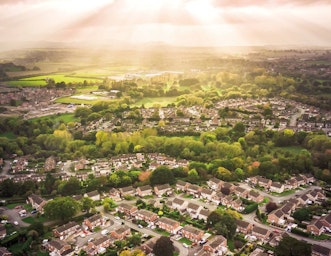
With the COP26 UN climate summit just hours away, Paul Allen explores the history and background of international climate negotiations and looks at what needs to happen now.
On 1-12 November the majority of the world’s governments and thousands of policymakers, negotiators, scientists, campaigners and businesses will gather in Glasgow for the most important climate change negotiations since the signing of the Paris Agreement nearly six years ago.
A team from CAT will be there to share our research on zero carbon solutions and to work with others to support urgent action on the most pressing issues through providing skills, education and inspiration.
But what is COP26, why is it so important, and what kind of commitments and action should we look for from world leaders?
To get a better understanding of what needs to be achieved, it’s useful to begin by looking back at the history of climate negotiations, exploring what has worked, what hasn’t, and what needs to happen now.
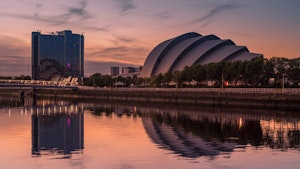
Climate negotiations – from Rio to Copenhagen
The story of COP26 is rooted in the 1992 Rio Earth Summit. Alongside several key decisions, the Rio Summit opened the United Nations Framework Convention on Climate Change (UNFCCC) for countries to sign up to, with the convention entering into force in March 1994. It offers an ongoing international framework for bringing together efforts by the world’s governments to tackle the serious challenges posed by climate change.
The UNFCCC gained near universal acceptance; the countries that signed up being referred to as ‘Parties to the Convention’. Since then, a ‘Conference of the Parties’, or ‘COP’ for short, has been held every year (except last year) to assess progress to date and agree the actions that need to be taken next.
As these annual negotiations progressed it became clear that too little progress was being made, due in part to the underestimation of climate change as a serious global problem. By COP13, the growing urgency suggested by the climate science triggered a two-year process called ‘the Bali Road Map’, aiming to finalise a binding agreement by 2009 at COP15 in Copenhagen.
To help increase the ambition in this process, CAT presented our first Zero Carbon Britain report at ‘side-events’ for both COP14 in Poznan and COP15 in Copenhagen. ‘Side-events’ are the way the official UNFCCC process allows the national delegations and their research teams to access information from a wide variety of sources.
However, despite a great many people pushing for an agreement, Copenhagen failed to deliver any serious climate commitments. A ‘Copenhagen Accord’ was drafted by a small group of nations, but it was not based on the negotiations and was nowhere near the level of ambition needed to rise to the scale of the climate challenge.
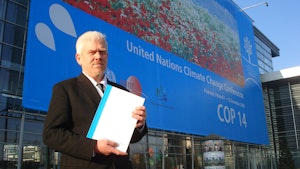
The Paris Agreement
The UNFCCC learned a hard lesson when Copenhagen failed to deliver any meaningful international agreement. Many people became disappointed and disillusioned but there was no option other than continuing negotiations. The process was rethought, with a focus on agreeing global climate targets at COP21 in Paris in 2015.
Rather than having to reach a final agreement that apportions exactly who will do what, the Paris process was based around voluntary ‘nationally determined contributions’ (NDCs) from each country, backed by a ‘ratchet mechanism’ to increase ambition every five years, until the voluntary pledges become enough to collectively deliver on the agreed global targets.
To help ensure success, many diverse elements of global society came together in Paris to press for an agreement on the targets, including visionary leaders from both developed and developing countries, civil society, businesses, national politicians, the world’s major religions, citizen activists, celebrities, NGOs, mayors and governors. CAT was honoured to be invited to present Zero Carbon Britain at a number of side-events within the official Paris negotiations.
This time, success was achieved, and a meaningful agreement on a target and a process emerged. This was an important milestone which revitalised confidence in the process.
The Paris Agreement was a historic moment as the climate science became formally accepted by the vast majority of nations. Its target was actually more ambitious than many expected. It aims to, “hold the increase in the global average temperature to well below 2°C above pre-industrial levels and to pursue efforts to limit the temperature increase to 1.5°C above pre-industrial levels, recognising that this would significantly reduce the risks and impacts of climate change.”
The agreement reached in Paris sparked real hope that governments were serious about collaborative leadership towards a world where warming would be limited to 1.5°C, so protecting many of the most vulnerable areas and people.
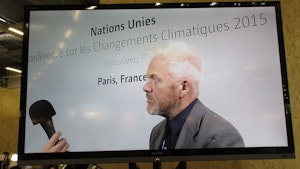
UK climate commitments
In 2018, the Intergovernmental Panel on Climate Change (IPCC) special report ‘Global Warming of 1.5°C’ stated that CO2 emissions need to decline by about 45% from 2010 levels by 2030 and reach net zero around 2050.
So, as countries offered their initial voluntary pledges (NDCs), net zero by 2050 became a growing narrative.
In 2019, the UK enshrined net zero by 2050 in law by amending the 80% reduction target of the Climate Change Act 2008 to ‘at least 100%’. The updated Act requires the UK government to set legally-binding five-year ‘carbon budgets’ towards this net zero target.
Carbon budgets are set at least 12 years in advance to allow policymakers, businesses and individuals enough time to prepare for the necessary changes. In their June 2021 progress report, the advisory body established under the Act, the Climate Change Committee, made it clear they were not yet happy with the rate of progress on meeting budgets four (2023-27), five (2028-2032) and six (2033-37).
On 19 October the UK Government released its ‘Net Zero Strategy’, which sets out in much more detail how the UK will deliver on its commitment to meet these budgets.
Mind the gap
So far, the collective total of the NDCs offered from countries across the globe is insufficient to meet the Paris Agreement target. This has become known as the ‘emissions gap’ – and it is large.
The newly released 2021 UN Emissions Gap Report estimates that new and updated NDCs only take 7.5% off predicted 2030 emissions, while 55% is needed to meet the 1.5°C Paris goal, leaving the world on track for a temperature rise this century of at least 2.7°C.
Meanwhile, the latest UN Production Gap Report finds that, despite increased climate ambitions and net zero commitments, governments still plan to produce more than double the amount of fossil fuels in 2030 than what would be consistent with limiting global warming to 1.5°C.
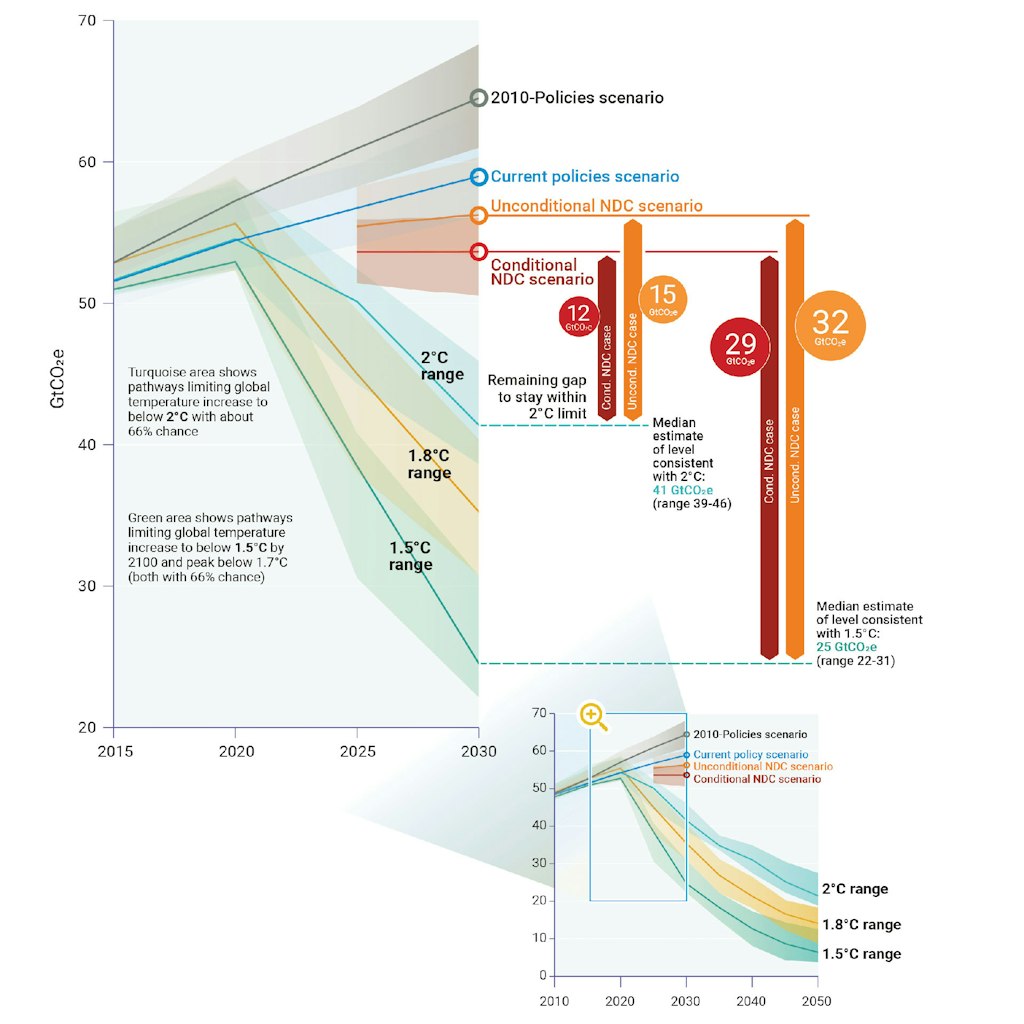
The agreed ‘Paris Ratchet Mechanism’ must now be used through COP26 negotiations to bring emissions reduction pledges more in line with the target, as the first five-year period since the Paris Agreement is now over and ambitious action must begin.
Leading climate scientists such as Professor Kevin Anderson warn us that many current NDCs incorporate a massive use of negative emission technologies. These are still unproven and uncosted at scale, but are being used to avoid urgent actions needed now and so transfer a significant proportion of the mitigation burden on to future generations.
If the hypothetical benefits of such technologies are removed, then much higher rates of emission reduction are required immediately, yet this is rarely discussed.
Our understanding of both the problems and the solutions has developed over the six years since the signing of the Paris Agreement, and the negotiating process must recognise this.
On 9 August this year, the IPCC released the first part of its Sixth Assessment Report, which makes it clear that time is now short:
“Many of the changes observed in the climate are unprecedented in thousands, if not hundreds of thousands of years, and some of the changes already set in motion—such as continued sea level rise—are irreversible over hundreds to thousands of years. However, strong and sustained reductions in emissions of carbon dioxide and other greenhouse gases would limit climate change.”
Failing to act at the scale and speed demanded by the problem will increasingly lock-in devastating climate impacts to both the international community and to natural ecosystems.
Join the calls for urgent action
What happens during COP26 will have a huge impact on the delivery of a stable future climate for everyone on Earth.
We must ‘keep 1.5°C alive’ and continue to push for the ambitious and immediate action that keeps this target within our reach, even though the pathways for achieving this are narrowing rapidly. The difference in impacts between 1.5°C and 2°C of warming is stark, and every fraction of a degree makes a difference.
It is vital that we use this moment to push for higher ambition, accelerating action, the provision of the finance needed for mitigation, adaptation, and support for countries experiencing loss and damage from climate impacts and for nature protection.
A wide range of activities are taking place across the globe to call for ambitious action at COP26, culminating in a Global Day of Action on 6 November. Active citizens, businesses, artists, doctors, architects, academics, religious leaders, parents, young people and NGOs will come together in person in Glasgow, London and Cardiff, in local hubs across the world, and at a digital rally to demand urgent action for climate justice.
CAT will be sharing its solutions-focused work at COP26, both at events in the Blue Zone and through the wider civil society Green Zone and People’s Climate Summit.
We hope to see many of you in person or at online events as we work together on urgent action to create a safer, fairer, kinder world.
Get updates from our team at COP26
Join Paul and others from the CAT team for a free webinar live from COP26 to hear their updates and insights. Booking required (follow links below):
About the author
Paul is CAT’s Zero Carbon Britain Knowledge and Outreach Coordinator. He has been involved with our research into net zero scenarios since the beginning, coordinating the development of research reports and liaising directly with government, industry, NGOs and the arts to share findings.
- Zero Carbon Britain
- Climate Change
- Policy
Related Topics
Related events


Zero Carbon Britain: Carbon Literacy for Communities Online
17th June 2025Related news
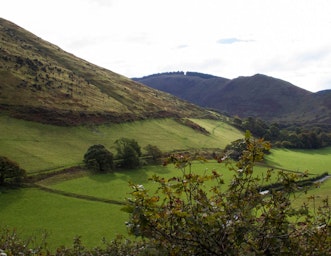
CAT Conversations: Sandy Stevens, CAT graduate
17th April 2025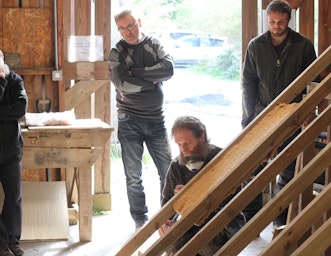
CAT stories – Nick Parsons and Mike Russell
29th January 2025
CAT Conversations: Fergus Paxton, CAT volunteer
2nd December 2024
‘The finance COP’
29th November 2024Email sign up
Keep up to date with all the latest activities, events and online resources by signing up to our emails and following us on social media. And if you'd like to get involved and support our work, we'd love to welcome you as a CAT member.
